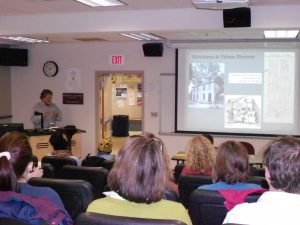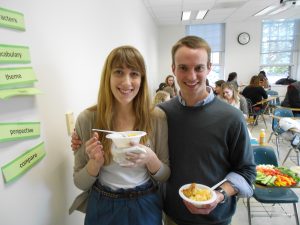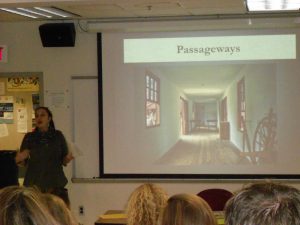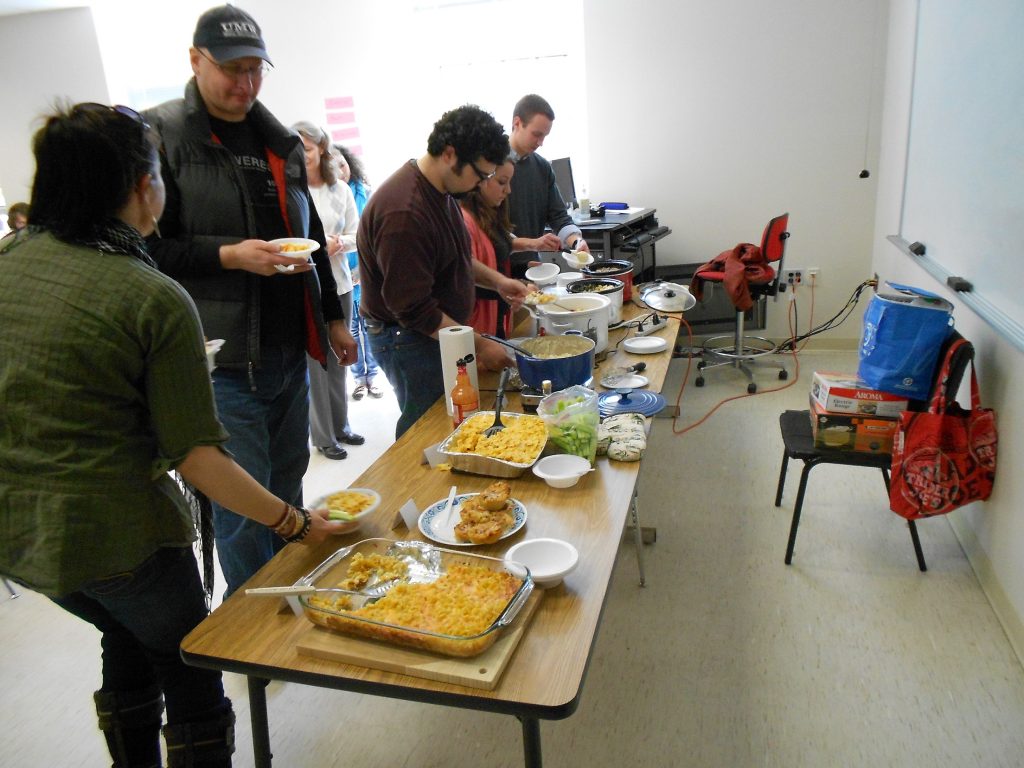ON February 18th, 2012, the historic preservation department hosted its first Mini-Symposium on Historic Virginia Kitchens. The official title, ‘Research perspectives on Historic Virginia Kitchens: Architecture, Slavery & Interpretation” became a platform through which preservation faculty, students, alumni and research enthusiasts could share with each other and the general public their expertise regarding historic kitchens.
The morning began with the newly-returned Professor Doug Sanford sharing his research on urban slave kitchen architecture and archaeology in Charleston, South Carolina. Professor Sanford explained how the architectural and archaeological evidence of urban kitchens in Charleston had been largely destroyed due to the socioeconomic changes occurring in the area over the past 50 years. Professor Sanford also explained how archaeological clues give insight to the lifeways of slave cooks.
Professor Kelley Deetz from Randolph College then took the stage to talk about the convergence of culture, heritage, social hierarchy, competition and race relations in slave kitchen spaces. Professor Deetz discussed the importance of the kitchen space as a crossroads of several facets of everyday life. She also delved into how the kitchen space was used as a cultural space for African-American slaves. She explained that the slave cook in a particular household was a position of unusual power for African-American in the pre-emancipation South. Truly, the slave-owners were forced to trust and rely on their cooks in a number of ways.
Lastly, Senior Erika Debroekert’12 and historic preservation alumni Christopher Young’11 shared their research regarding the Mary Washington House Kitchen from 2011. These two preservation students conducted an independent study with Professor Michael Spencer on the history and evolution of the Mary Washington House Kitchen. Here, they presented their findings and elaborated on the ways in which social and historical change influenced the architectural evolution of the kitchen.
After a rigorous series of lectures, the symposium moved downstairs where lunch was served in the form of a mac and cheese cook-off, featuring entries from professors and students alike. The theme of culinary competition as described in Professor Deetz’s lecture clearly carried over into the realm of the cook-off, where several delicious recipes were put to the test and judged on two categories, best tasting and most original.
The day’s events culminated in a tour of the Mary Washington House Kitchen in downtown Fredericksburg by our own Professor Michael Spencer. Professor Spencer led attendees on a walk-through of the kitchen and showed the visual clues of the kitchen’s evolution over time. He used these architectural clues with old photos and documents of the Mary Washington House and illustrated how historical and social changes dictated the architectural changes found in the kitchen.
A big ‘thank-you’ to all speakers, attendees and cook-off participants, for making this first mini-symposium a huge success. We had a great time and hope you did too. And just in case you missed all the fun, you can find the three cook-off winners’ recipes below:
Most Original Winner: Daniel Messplay, ‘Daria’s Favorite Mac&Cheese’ RECIPE
Best Tasting Winners: Dr. Andrea Livi Smith, ‘Bechamel’ Recipe and Susanna Parmlee, ‘Buffalo Chicken Mac n’ Cheese’




You must be logged in to post a comment.